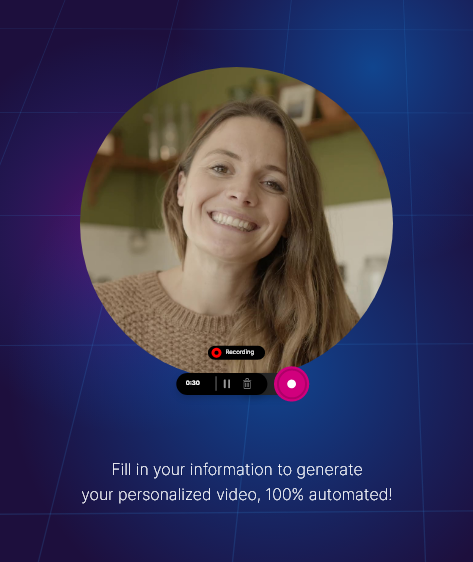Meetings have long been a fundamental part of business operations. Yet, for many, they are synonymous with wasted time, inefficiencies, and distractions. With the right tools, strategies, and mindset, meetings can be transformed from time sinks into productive, collaborative sessions. Welcome to the guide that will make meetings easy.

Traditional vs. Modern Meeting Dynamics
- Traditional Meetings:
- Often in-person
- Requires physical presence
- Can be costlier due to travel
- Limited to available meeting spaces
- Modern Meetings:
- Can be virtual
- More flexible in terms of attendance
- Cost-effective
- Accessible through various platforms and devices
According to Harvard Business Review, even before the COVID-19 pandemic, the shift towards remote work and virtual meetings was palpable. This shift has made the ability to run efficient online meetings an essential skill.
Meetings Made Easy: Strategies for Efficient Meetings
While the medium might differ, the core principles for an effective meeting remain consistent. Here are strategies to ensure your meetings are productive:
1. Have a Clear Agenda
Before the meeting:
- Set clear objectives
- Determine the topics to be discussed
- Allocate time for each topic
- Share the agenda with participants in advance
This helps attendees come prepared, making the meeting more focused. Forbes emphasizes the importance of having a well-prepared agenda for meeting productivity.
READ MORE: How to Create Meeting Agenda Template: Google Docs?
2. Invite Relevant Stakeholders
Not everyone needs to attend every meeting. Inviting only necessary participants ensures:
- Efficient decision-making
- Minimized distractions
- Streamlined communication
3. Use Technology Wisely
Utilize platforms that are:
- Reliable
- User-friendly
- Compatible with various devices
Popular platforms like Zoom, Microsoft Teams, and Google Meet offer various features to enhance virtual meeting experiences.

4. Establish Ground Rules
Setting meeting norms can eliminate many common disruptions. For instance:
- Muting when not speaking
- Turning on video for engagement
- Respecting allocated speaking times
5. Encourage Participation
Engaged participants make for a successful meeting. To ensure this:
- Ask open-ended questions
- Assign roles (e.g., note-taker, time-keeper)
- Rotate meeting leadership
6. Follow-up Promptly
After the meeting:
- Share minutes or a summary
- Define action items and responsibilities
- Set deadlines for tasks
The Role of Meeting Tools in Simplifying Processes
In today’s digital age, there are countless tools designed to make meetings simpler and more productive. Here are some standout tools and their features:
- Weezly: Simplifies the scheduling process by showing mutual free slots. Check it out here.
- Slack: A messaging platform that allows for quick communications and integrations with other meeting tools.
- Miro: An online collaborative whiteboard platform, perfect for brainstorming sessions. Visit Miro.
Using these tools can drastically reduce administrative hassles and focus on the content of the meeting itself.
Why Investing in Meeting Scheduling Tools Matters?

Regardless of your industry, efficient and productive meetings can significantly boost team productivity while saving valuable hours that might otherwise be lost in disorganized or aimless gatherings. This is where investing in reliable and efficient meeting scheduling tools becomes vital.
For professionals constantly juggling multiple appointments and deadlines—like freelancers—tools like Calendly for freelancers can prove to be real time-savers. And it’s not just about individual time saving; implementing digital solutions helps businesses reduce missed appointments and enhances overall customer experience.
Let’s explore some comparisons:
- Weezly vs. Calendly: Both tools allow you tons of integrations, event types, and scheduling power. Weezly has a more efficient video widget for scheduling via video.
- Calendly vs. Doodle: Both these tools provide simple UI and easy schedule set-up but differ in pricing strategies and integration capabilities.
- Calendly vs. YouCanBook.Me: While Calendly offers lower entry-level prices, YouCanBook.me provides more competitive packages for heavy users.
- Calendly vs. Appointlet: Appointlet stands out in providing unlimited booking pages even for free plans, whereas Calendly restricts this feature to paid plans only.
- Calendly vs. Setmore: Setmore exceeds with its complimentary live booking service provided for premium plans, marking one clear distinctive edge over Calendly.
These comparisons should help you make informed decisions on the best-suited tool according to your needs or if you want to switch from one application to another.
Meetings Made Easy: Conclusion
Meetings, when done right, can be a powerhouse of collaboration, decision-making, and innovation. The strategies mentioned here, combined with the intelligent use of modern tools, can ensure meetings are both efficient and effective. Whether you’re adapting to the modern era of virtual meetings or seeking to refine your in-person sessions, these principles will serve you well. Making meetings easy is no longer a dream; it’s a reality within your grasp.







